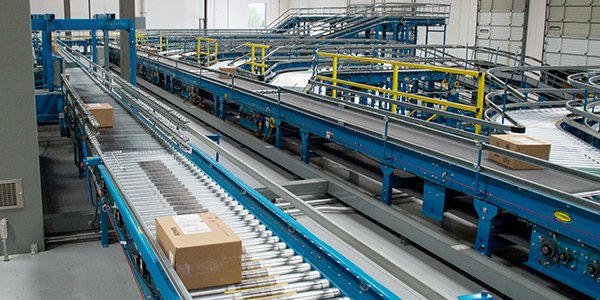
The Top 5 Reasons to Hire a System Integration Team
Aaron Jones | 11 July 2013
A growing trend in the material handling and automation industries is the use of system integrators as opposed to traditional equipment-focused manufacturers for materials handling systems. Although both are seeing a growth in business, system integration companies are enjoying a faster rate of growth than equipment manufacturers, and this trend is leading some of the largest end users of automation equipment to take note and follow suit.
From those looking outside of this industry there may be questions and even confusion as to why system integrators are having such success and growth as opposed to manufacturing-based solutions, but those who are in the industry and have experienced the difference, clearly understand the shift.
System integration is commonly misunderstood and misinterpreted, but simply can be defined as bringing together of multiple components or subsystems into a single system, ensuring that the net result is one operational system. Professional system integrators must have a broad range of skill sets and breadth of knowledge with a wide understanding of technology. They commonly have a solid understanding of controls and software, automation hardware, interface protocols, and outstanding problem-solving skills. So why has the material handling and facility automation industry made such a movement towards system integration services:
- Flexibility – The days have passed where consumers will accept having a limited selection. The substantial development of smart phones, tablets, and all mobile devices now allows a better understanding of options at all times. With a simple question to Siri, one can know exactly every restaurant in a 20-mile radius, which convenience store is nearby, or where to get the lowest price gasoline.
Companies that desire automaton appreciate similar flexibility in their equipment selections, and limitations are extremely unpopular. System integration providers tend to bring flexibility in providing a selection of robotics, conveyor equipment, controls methodology, and solutions-based technologies. Whereas equipment manufacturers are limited to the specific technology they provide, a good systems integrator is not limited to a certain technology. Instead, they can provide flexible options alongside a benefit analysis.
- Greater Focus on Advanced Software and Controls – Integrators tend to be highly focused on robust innovative software solutions, most typically a Warehouse Control System (WCS) or Manufacturing Information Systems (MIS). As in the previous analogy toward the availability of information and options, today’s facility management team desires information pertaining to their system throughout that day and cannot wait to make important decisions at the end of shift.
Today’s facility management team needs to react to increased daily order demand, unplanned maintenance requirements, operational occurrences, etc., etc. System integration companies tend to focus on the availability of real-time system performance information, bundled in a usable format, and sent directly to a smart phone!
- Strong Engineering Capabilities – As system integrators do not need to be concerned for “distractions” such as labor contract discussions, increased/decreased equipment production, and advanced manufacturing initiatives, they tend to focus on building their engineering and problem-solving capabilities. Commissioning an automated system is undoubtedly the most difficult aspect of a system start up.
In order to bring a system to beneficial usage in the timeliest manner, the site commissioning team should have excellent problem-solving skills in order to maximize system productivity. With all things considered, most often the greater engineering focused company will be the better problem solvers, offer the most innovative and successful solutions, and be able to find ways to “make it happen” when directly compared to manufacturing-focused companies.
- End User Workload– Over the past decade the expectations and demands on a facility or operational employee have increased by more than 2X. Today’s facility resources do not have the time necessary to create a solid integration plan for system success, so they must look for outside help. System integration teams are well prepared for both vertical and horizontal integration, making certain that each area of the facility is talking to each other, leaving less likelihood of equipment isolation.
- Expanded Team of Experts – System integrators bring along with them the unparalleled experts within each area of technology that is provided. Whether the proposed system includes complicated sortation, automated storage and retrieval, or robotics, it is very common for the solution-based team to each have a designated project representative. Although the system integrator remains the single point of contact for the end user, it is expected that each vendor reporting to the system integrator should provide a dedicated project team. This extended team allows dedicated focus by each party, on the areas in which they do best!
As this shift of moving towards system integration companies continues to increase proportionally, I hope that I have helped build awareness of the benefits of what a true system integrator is.
The next time you are in conversation and hear the word “system integrator” or “system integration”, please ask yourself if the desired outcome requires flexible technology and a team of experts who can bring the system up quickly, with advanced software and/or controls. If the answer is yes to any of the above, please reach out to your local system integrator for a cutting edge, competitive solution.
President & CEO of Bastian Solutions.
Comments
No comments have been posted to this Blog Post
Leave a Reply
Your email address will not be published.
Comment
Thank you for your comment.